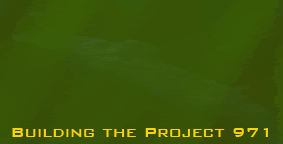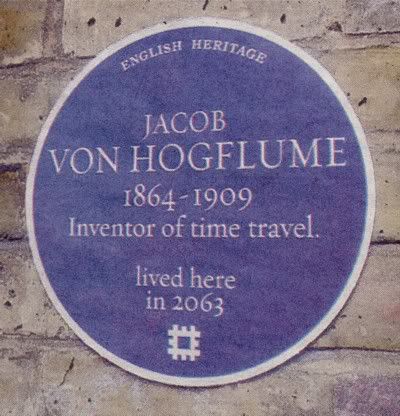XO 
Join Date: Apr 2005
Location: Thuringia
Posts: 429
Downloads: 16
Uploads: 0
|

Some (longer) copy&paste. In a way even off-topic. You can skip it, if not interested. But it's some cool out-off-the-box thinking, and goes a little bit about the fundamental problems Letum has scratched...
Quote:

The knowledge of exoteric science is comically limited by the fact that we have no access, except in the most indirect way, to any other celestial body than our own. In the last few years, the semi-educated have got an idea that they know a great deal about the universe, and the principal ground for their fine opinion of themselves is usually the telephone or the airship. It is pitiful to read the bombastic twaddle about progress, which journalists and others, who wish to prevent men from thinking, put out for consumption. We know infinitesimally little of the material universe. Our detailed knowledge is so contemptibly minute, that it is hardly worth reference, save that our shame may spur us to increased endeavour. Such knowledge - [Knowledge is, moreover, an impossible conception. All propositions come ultimately back to "A is A".] - as we have got is of a very general and abstruse, of a philosophical and almost magical character. This consists principally of the conceptions of pure mathematics. It is, therefore, almost legitimate to say that pure mathematics is our link with the rest of the universe and with "God".
...
In old times, it was supposed that the Earth was the centre of the Universe. The Heavens being above the Earth-they did not realise them as being equally below it-they were accounted as of the Divine Nature. And as they recognised imperfections and irregularity in mundane affairs, they thought that the movements of the Heavenly Bodies, which they observed to be regular, must be perfect. They then started some apiori thinking. Their mathematicians had the idea that a Circle was a perfect figure; therefore (they said, with characteristic theological reasoning) all heavenly bodies must move in circles.1 This religious assumption caused great trouble to the astronomers. As their measurements became more extended and accurate, they found it increasingly difficult to reconcile observation with theory, at least to do so without putting themselves to vast inconvenience in their calculations. So they invented "cycles" and "epicycles" to explain the observed movements. Ultimately Copernicus was goaded by this annoyance to suggest that it would really be very much more convenient (if only the idea were not so wicked) to imagine that the Sun, and not the Earth, was the centre of the System. In mathematics there are no fixed facts. Bertrand Russell says that in this subject "nobody knows what he is talking about, and it matters to nobody whether he is right or wrong". For example: Begin with the assumption that the Moon is the immovable centre of the Universe. Nobody can contradict it; one simply switches the calculations over to suit. The practical objection to this is that it would not facilitate the work of navigators. It is important to have this idea in one's mind, because otherwise one fails to grasp the whole spirit of modern Science-Philosophy. It does not aim at Truth; it does not conceive of Truth (in any ordinary sense of the word) as possible; it aims at maximum convenience. They did not understand that the Circle is only one case of the Ellipse: that in which the foci coincide.
...
A short digression. One of the most important doctrines of the Ancients was that of the Macrocosm and the Microcosm. Man is himself a little Universe; he is a minute copy of the big Universe.
...
There are only two operations possible in the Universe, Analysis and Synthesis. To divide, and to unite. Solve et coagula: said the Alchemists.
If anything is to be changed, either one must divide one object into two parts, or add another unit to it. This principle lies at the basis of all scientific thought and work.
The first thought of the man of science is Classification, Measurement. He says, "This oak-leaf is like that oak-leaf; this oak-leaf is unlike this beech-leaf". Until one has grasped this fact, one has not begun to understand Scientific Method.
...
The business of Science is to explore Nature. It's first questions are, What is this? How did it come to be? What are its relations with any other object? The knowledge acquired may then be used in Applied Science, which asks: How can we best employ such-and-such a thing or idea for the purpose that, to us, seems fit? An example may make this clear.
The Greeks of old were aware that by rubbing amber (which they called Electron) upon silk, the amber acquired the power of attracting to itself light objects such as small pieces of paper. But there they stopped. Their science was hoodwinked by theological and philosophical theories of the a priori type. It was well over 2,000 years before this phenomenon was correlated with other electrical phenomena. The idea of Measurement was hardly known to anyone but mathematicians like Archimedes, and astronomers. The founda'tions of Science, as it is understood to-day, were hardly laid at all 200 years ago. There was an immense amount of knowledge; but it was nearly all qualitative. The classification of phenomena depended chieflv upon poetic analogies. The doctrines of "correspondences" and signatures" were based upon fanciful resemblances. Cornelius Agrippa wrote of the "antipathy" between a Dolphin and a Whirlpool If a meretrix sat under an olive tree, it would bear no more fruit. If anything looked like something else, it partook in some mysterious way of its qualities.
...
This sounds to-day to many people mere superstitious ignorance and nonsense; but it is not altogether so. The old system of classification was sometimes good and sometimes bad, as far as it went. But in no case did it go very far. The natural ingenuity of their natural philosophers did compensate very largely for the weakness of their theory; and it did ultimately lead them (especially through Alchemy, where they were forced by the nature of the work to add real to their ideal observation) to introduce the idea of Measure. Modern Science, intoxicated by the practical success which attended this innovation, has simply shut the door on anything that cannot be measured. The Old Guard refuses to discuss it. But the loss is immense. Obsession with strictly physical qualities has blocked out all real human values.
...
The theory of Animism was always present in the minds of the mediaeval masters. Any natural object possessed not only its material characteristics, but was a manifestation of a more or less tangible idea on which it depended. The Pool was a pool, true; but also there was a nymph whose home it was. In her turn, she was dependent on a superior kind of nymph, who was much less closely attached to any given pool, but more to pools in general; and so on, up to the supreme Lady of Water, who exercised a general supervision over her whole dominion. She, of course, was subject to the General Ruler of all the Four Elements. It was exactly the same idea as in the case of the police constable, who has his sergeant, inspector, superintendent, commissioner, always getting more cloudy and remote until you reach the shadowy Home Secretary, who is, himself, the servant of a completely intangible and incalculable phantom called The Will of the People.
...
We may doubt how far the personification of these entities was conceived as real by the ancients; but the theory was that while anyone with a pair of eyes could see the pool, he could not see the nymph except by some accident. But they thought that a superior type of person, by dint of searching, study and experiment, might acquire this general power. A person still more advanced in this science could get into real connection with the superior, because subtler, forms of Life. He could perhaps cause them to manifest themselves to him in material shape.
A good deal of this rests upon the Platonic ideology, which maintained that any material object was an impure and imperfect copy of some ideal perfection. So men who wished to advance in spiritual science and philosophy strove always to formulate for themselves the pure idea. They tried to proceed from the Particular to the General; and this principle has been of the greatest service to ordinary science. The mathematics of 6+5=11, and 12+3=15, was all in bits. Advance only came when they wrote down their equations in general terms. X2Y2=(X +Y) (X-Y) covers all possible cases of subtracting the square of one number from the square of another. So the Meaningless and Abstract, when understood, has far more meaning than the Intelligible and Concrete.
...
Victorian science, flushed with its victory over Supernaturalism, was quite right to declare the Immeasurable "Out of Bounds". It had a right to do so on technical grounds, and it was a strategical necessity of its offensive; but it hampered itself by limiting its scope. It laid itself open to the deadliest attacks from Philosophy. Then, especially from the angle of Mathematical Physics, its own generals betrayed its dogmatism. The essence of Science to-day is far more mysterious than the cloudiest speculations of Leibnitz, Spinoza or Hegel; the modern definition of Matter reminds one irresistibly of the definition of Spirit given by such mystics as Ruysbroek, Boehme and Molinos. The idea of the Universe in the mind of a modern mathematician is singularly reminiscent of the ravings of William Blake.
But the mystics were all wrong when they were pious, and held that their mysteries were too sacred to analyse. They ought to have brought in the idea of Measure. This is exactly what was done by the magicians and Qabalists. The difficulty has been that the units of measurement have themselves been somewhat elastic; they even tend to be literary. Their definitions were as circular as, but not more fugitive than, the definitions of the physicists of to-day. Their methods were empirical, though they strove to make them accurate, as well as lack of precise measures and standard apparatus permitted, because they had not yet formulated any true scientific theory. But their successes were numerous. All depended on individual skill. One would rather trust oneself in illness to the born physician than to the laboratory experts of Battle Creek.
One of the great differences between ancient and modern Chemistry is the idea of the Alchemists that substance in its natural state is, in some way or other, a living thing. The modern tendency is to insist on the measurable. One can go into a museum and see rows of glass globes and bottles which contain the chemical substances which go to make up the human body; but the collection is very far from being a man. Still less does it explain the difference between Lord Tomnoddy and Bill Sykes.
------
source: passages taken from Aleister Crowleys "The Book of Thoth" and "Magick"
|
Last edited by Smaragdadler; 07-13-07 at 02:50 AM.
|


 07-13-07, 01:59 AM
07-13-07, 01:59 AM



 07-13-07, 02:05 AM
07-13-07, 02:05 AM




 07-13-07, 02:40 AM
07-13-07, 02:40 AM



 07-13-07, 03:41 AM
07-13-07, 03:41 AM





 07-13-07, 03:47 AM
07-13-07, 03:47 AM





 07-13-07, 06:27 AM
07-13-07, 06:27 AM



 07-13-07, 06:39 AM
07-13-07, 06:39 AM

 Chock
Chock



 07-13-07, 07:03 AM
07-13-07, 07:03 AM





